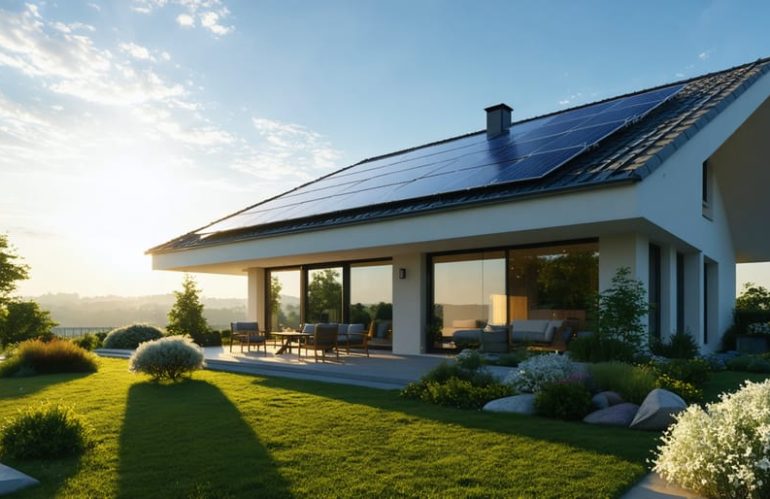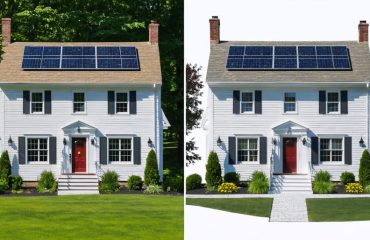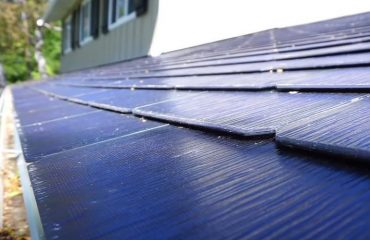Harnessing the sun’s power to heat your home is a smart, sustainable choice that can slash energy bills and shrink your carbon footprint. Solar heating systems capture the sun’s radiant energy, converting it into clean, efficient warmth that keeps your living space cozy without relying on fossil fuels. By investing in solar panels and a well-designed distribution system, you can tap into an abundant, renewable resource while reducing your dependence on the grid. Whether you opt for active or passive solar heating, this eco-friendly approach not only benefits the environment but also puts you in control of your home’s comfort and energy costs. Embrace the power of solar and discover how this cutting-edge technology can transform the way you heat your home, offering a brighter, greener future for you and the planet.
How Solar Heating Works
Passive Solar Heating
Passive solar heating is an eco-friendly and cost-effective way to warm your home by harnessing the sun’s natural energy. By designing your home to maximize solar heat gain, you can reduce reliance on traditional heating systems and lower energy bills. South-facing windows allow sunlight to enter and warm the interior during the day, while thermal mass materials like concrete, stone, or tile absorb and store heat, slowly releasing it at night. Proper insulation and air sealing help retain this captured heat, maintaining a comfortable temperature. Overhangs or deciduous trees can provide shade in summer to prevent overheating. Passive solar heating works best in climates with ample sunlight and can be enhanced with features like sunspaces or Trombe walls. While initial design and construction may require extra planning, the long-term benefits of a more sustainable, energy-efficient home are well worth the effort. Incorporating passive solar principles into your home design is a smart choice for both your wallet and the environment.
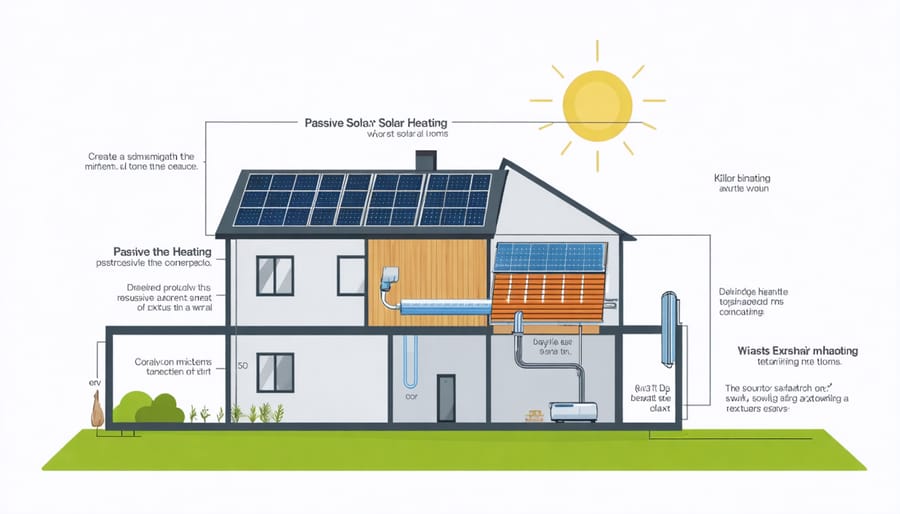
Active Solar Heating
Active solar heating systems use solar collectors to absorb the sun’s energy and transfer it to air or liquid, which is then circulated to heat your home. These systems can significantly reduce your reliance on traditional heating methods, leading to lower energy bills and a smaller carbon footprint. Solar collectors are typically mounted on the roof and connected to a heat storage unit, such as a water tank or thermal mass, to store the collected heat for later use. This stored heat is then distributed throughout your home using fans, blowers, or radiant floor systems. Active solar heating can provide a substantial portion of your home’s heating needs, especially during sunny winter days. With proper sizing and installation, these systems can be an efficient and eco-friendly way to keep your home comfortable year-round. While the initial investment may be higher than traditional heating systems, the long-term savings on energy costs and the environmental benefits make active solar heating an attractive option for many homeowners.
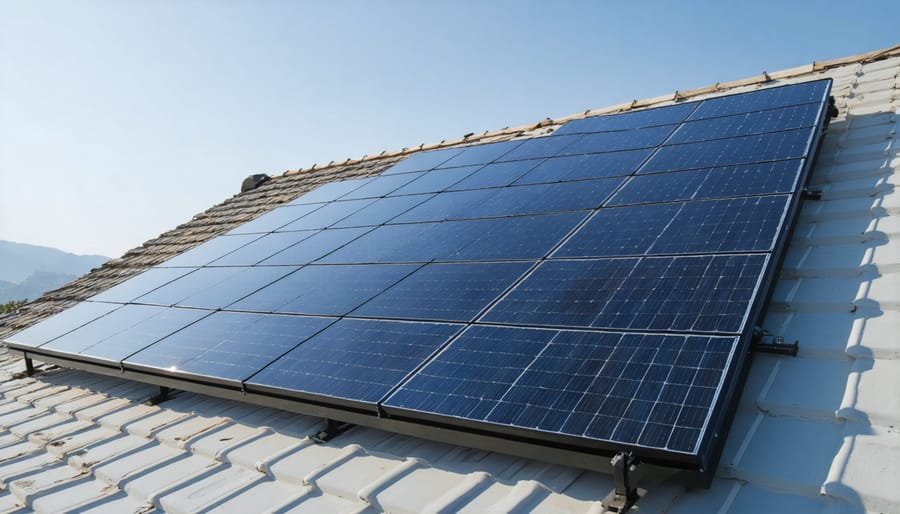
Benefits of Solar Home Heating
Lower Energy Bills
By supplementing or replacing conventional heating with solar panels, homeowners can significantly reduce their energy bills. Solar energy is free once the initial installation costs are covered, meaning you’ll be less reliant on the grid and its fluctuating prices. The exact savings will depend on factors like your location, system size, and energy consumption, but many homeowners report cutting their heating bills by 50% or more. In some cases, you may even be able to sell excess energy back to the grid for a profit. While the upfront investment in solar panels can be substantial, the long-term financial benefits are clear. Plus, with various financing options and government incentives available, going solar is more accessible than ever. As utility rates continue to rise, investing in solar heating can provide a valuable hedge against future price hikes, giving you greater control over your energy costs for decades to come.
Reduced Carbon Emissions
By heating your home with solar panels, you contribute to the global effort to reduce greenhouse gas emissions and combat climate change. Solar energy is a clean, renewable resource that doesn’t release harmful pollutants into the atmosphere like fossil fuels do. Every kilowatt-hour of solar energy you use for heating is one less generated by burning coal, oil, or natural gas. Over the lifetime of your solar heating system, this can add up to a significant reduction in your carbon footprint. Choosing solar means doing your part to create a more sustainable future for the planet. For further insights on environmental pros and cons, learn more in our discussion on solar power’s real impact.

Energy Independence
By generating your own clean, renewable energy with solar panels, you can break free from the unpredictable costs and supply issues associated with fossil fuels. Solar power offers a reliable, sustainable way to heat your home, insulating you from sudden price hikes or shortages. With solar, you’ll enjoy greater energy independence and the peace of mind that comes with knowing your heating source is always available. Plus, by reducing your reliance on fossil fuels, you’ll be doing your part to create a more sustainable future for generations to come.
Is Solar Heating Right for Your Home?
Assessing Your Home’s Solar Potential
To assess your home’s solar potential, start by evaluating your property’s sun exposure. South-facing roofs receive the most direct sunlight, making them ideal for solar panels. However, east- and west-facing roofs can also be suitable. Consider any shading from nearby trees, buildings, or other obstructions that could impact solar panel efficiency.
Next, examine your roof’s condition and available space. Solar panels are most effective on newer, well-maintained roofs with ample unobstructed area. Typically, you’ll need about 100 square feet of roof space per kilowatt of solar capacity installed.
Other site-specific factors to consider include your local climate, average sunshine hours, and seasonal weather patterns. Regions with abundant sunshine and minimal cloud cover are best suited for solar heating. Your home’s insulation and energy efficiency also play a role in determining the effectiveness of a solar heating system. Discover detailed guidelines on what size solar system your home may require for effective heating.
Consulting with a professional solar installer can help you accurately assess your home’s solar potential. They can provide a detailed analysis of your property, recommend the most appropriate system size and configuration, and estimate the potential energy savings and return on investment. By carefully evaluating these factors, you can determine if solar heating is a viable and beneficial option for your home.
Choosing the Best Solar Heating Option
When choosing the best solar heating option for your home, consider factors such as your climate, budget, and heating needs. Passive solar design leverages the sun’s energy through strategic window placement and thermal mass materials to naturally heat your home. Solar air heaters are a cost-effective option that circulate air through solar collectors to warm your living space. Hydronic collectors heat water or an antifreeze solution, which is then pumped through radiant floors or baseboards for efficient heating. Don’t forget to explore available solar incentives to maximize your savings. Consult with a professional to determine the most suitable solar heating solution for your specific needs and home layout.
Getting Started with Solar Home Heating
Working with a Solar Installer
When working with a solar installer to set up solar panels for home heating, it’s essential to choose a reputable and experienced professional. Look for a licensed and certified solar installer with a proven track record of successful installations. Request references and read reviews from previous clients to gauge their satisfaction level. A qualified installer should conduct a thorough assessment of your home’s energy needs, roof orientation, and sun exposure to determine the optimal system size and configuration. They should also provide a detailed proposal outlining the costs, expected energy savings, and installation timeline. During the installation process, expect the installer to handle all necessary permits, inspections, and interconnection agreements with your utility company. After the installation, your installer should provide you with a comprehensive walkthrough of the system, as well as information on maintenance, monitoring, and warranty coverage.
Solar Incentives and Financing
Homeowners can take advantage of various solar incentives and financing options to make the switch to solar home heating more affordable. Federal tax credits allow you to deduct a percentage of your solar installation costs from your taxes, while many states and utility companies offer additional rebates and incentives. Solar financing options, such as loans, leases, and power purchase agreements (PPAs), can help you go solar with little to no upfront costs. By leveraging these financial benefits, you can significantly reduce the overall cost of your solar heating system and enjoy long-term savings on your energy bills.
Conclusion
In conclusion, heating your home with solar panels offers a range of benefits, from reducing your carbon footprint to lowering your energy bills. By harnessing the power of the sun, you can create a more sustainable, self-sufficient, and cost-effective home heating system. While the initial investment may be higher than traditional heating methods, the long-term savings and environmental benefits make solar heating an attractive option for many homeowners. As technology continues to advance and costs decrease, solar home heating is becoming increasingly accessible to a wider range of households. If you’re interested in exploring solar heating for your home, it’s essential to assess your property’s suitability, research available options, and consult with professional installers to determine the best system for your needs. By making the switch to solar home heating, you can take a significant step towards a greener, more sustainable future while enjoying a comfortable, efficiently heated home.

